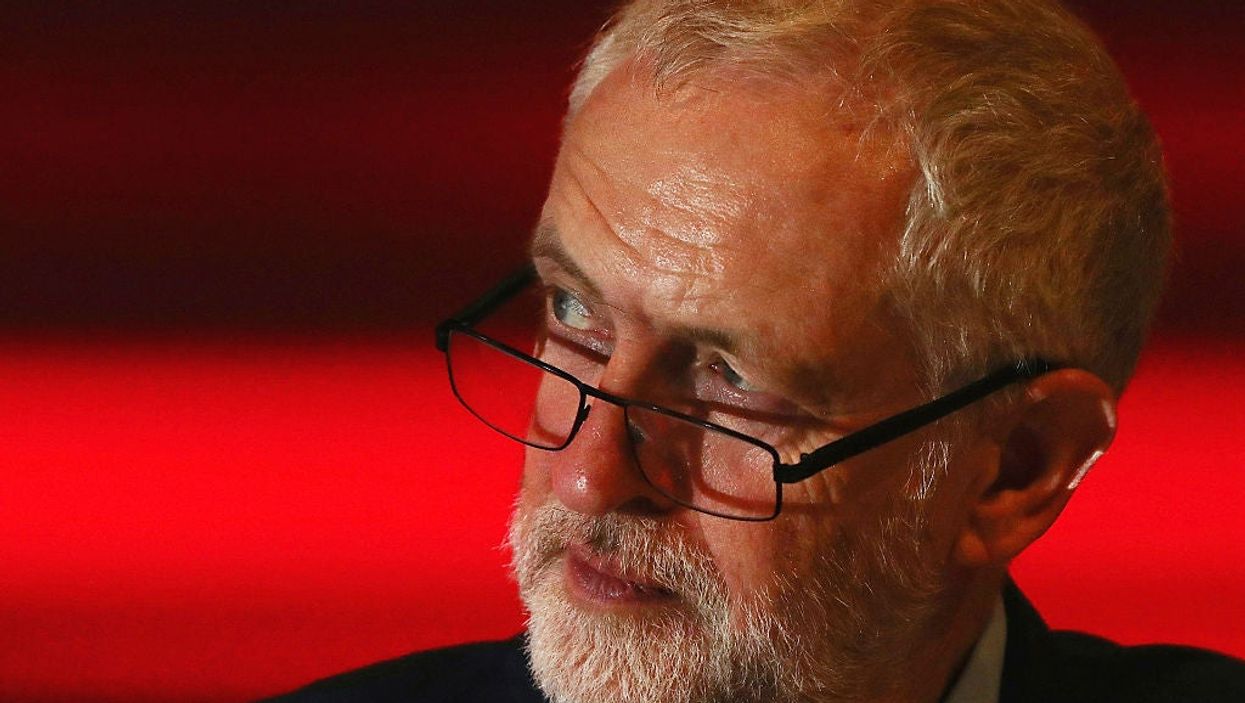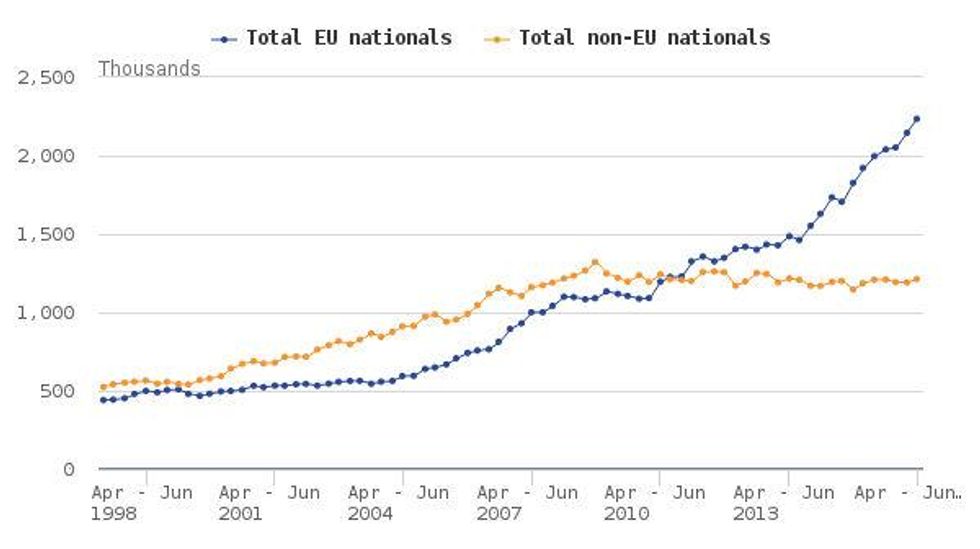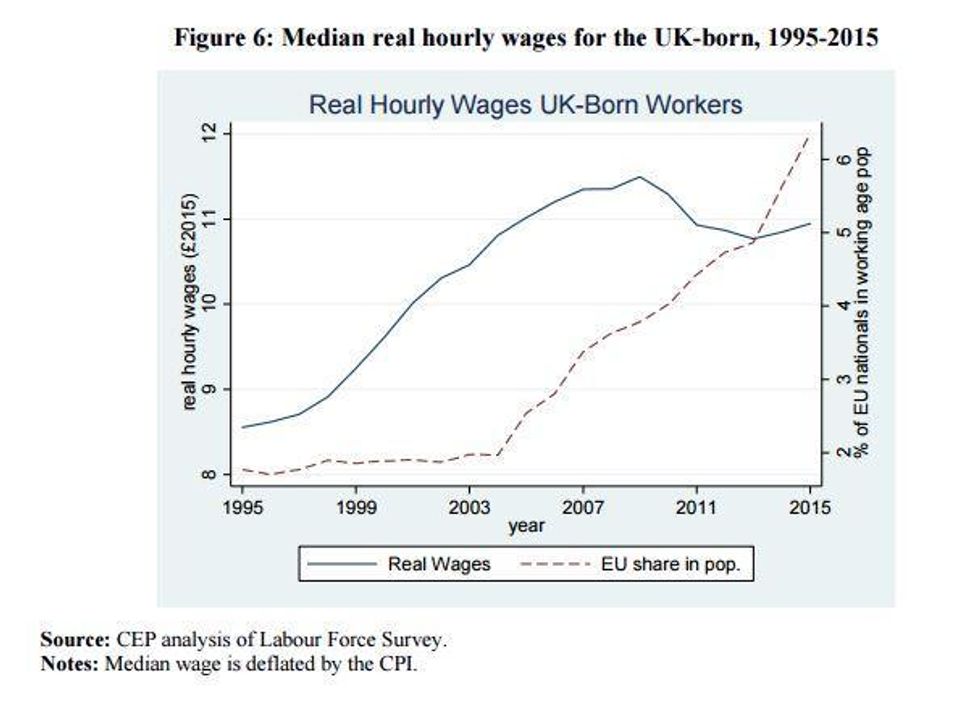
Jeremy Corbyn will announce to the Labour party conference that he will not promise to cut immigration to the United Kingdom.
This is yet another strong break from the Miliband years, when the party sold for profit mugs bearing the election slogan 'Controls on immigration'.
Corbyn will say in his speech on Wednesday that his party will not 'sow division' by pledging to cut immigration.
We will not sow division or fan the flames of fear. We will instead tackle the real issues of immigration – and make the changes that are needed
Corbyn's policy decision follows an announcement last week by the OECD on the need for governments to highlight the benefits of immigration.
The group of mostly rich countries explained governments must do this more in order to address anti-immigrant backlash.
In mid September the organisation of 35 countries released a report in which it highlighted the economic benefits of migration, and how little governments have done to spread this story.
Speaking at the report's launch, the OECD secretary-general Angel Gurría said:
Too many people in too many countries are losing faith in how we manage migration, and the refugee crisis has exacerbated this... The OECD’s analysis reveals that immigration is positive in the medium and long-term for public finances, economic growth and job markets.
The 'International Migration Outlook 2016' report stressed the benefits of immigrants to economies in multiple countries, but also argued that governments must do more to relieve the side of effects of spikes in immigration on a local level, such as increased strain on public services.
Large sudden inflows may exacerbate longstanding structural problems in local infrastructure and adapting to higher demand can take time.
The report went on to say that acknowledging that migration is not the primary cause of these challenges is an important first step to countering the public's negative attitude to immigrants.
The OECD provides a useful chart for comparing the number of immigrants in recent years.
Here are four more charts showing how immigrants benefit a country's economy.
1. Immigrants have jobs
Data published in the UK's quarterly labour force survey showed that the number of both EU nationals and non EU nationals in work was on the increase.

2. Immigrants are generally of working age
Data from the International Centre for Longevity showed that immigrants from the European Economic Area were more likely to be of working age than UK nationals
3. Immigrants have not depressed the wages of UK workers
A report by the London School of Economics this year showed that there was no correlation between an increase in immigration and the recent dip in wages. While wages have fallen in recent years and immigration continued to rise, wages were also rising while immigration was rising.

4. Immigrants' contribute to the economy
Data collected by University College London and the Centre for Research and Analysis of Migration showed EU and non-EU migrants had a positive net contribution to the UK's fiscal system, where has UK nationals had a negative effect.













